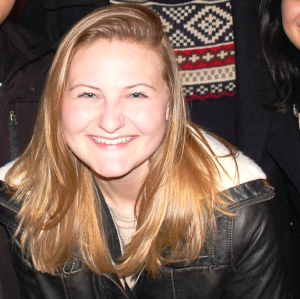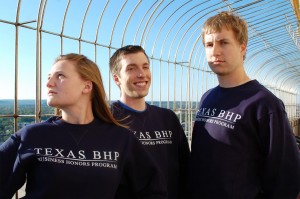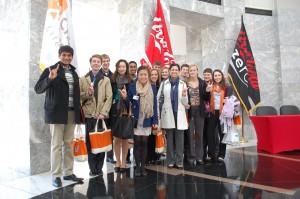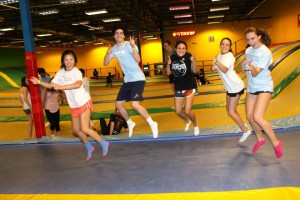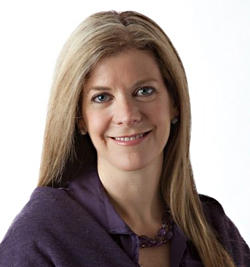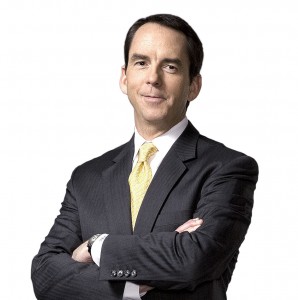 Phil Canfield graduated with degrees in Business Honors and Finance in 1989. He is currently a Managing Director and co-head of the Information Services & Technology Group at GTCR, a private equity firm based in Chicago. Since 1980, GTCR has invested more than $10 billion in over 200 companies, and Phil has been a part of many of those deals.
Phil Canfield graduated with degrees in Business Honors and Finance in 1989. He is currently a Managing Director and co-head of the Information Services & Technology Group at GTCR, a private equity firm based in Chicago. Since 1980, GTCR has invested more than $10 billion in over 200 companies, and Phil has been a part of many of those deals.
Take me through your career to this point.
When I graduated, I joined Kidder, Peabody and Company. I was there from 1990-1992. I joined GTCR in 1992 and am now into my 22nd year. I started out as an analyst and soon went on to earn an MBA from The University of Chicago Booth School. I then started our technology investing practice around 1996 and have continued to run that with my partner, Craig Bondy, who is a BHP alum as well. In 2007, I became GTCR’s managing partner.
What were the most important things you learned at Kidder and how did that role set you on the path to private equity?
I would start the story all the way back to BHP when I graduated from Texas and started doing the financial analysis work at Kidder. Building models, looking at comps, margin profiles, return on capital and all the financial metrics – I came into the role with a huge head start. Coming out of the McCombs undergrad program, I understood business finance, accounting and how to build financial models. When I joined Kidder, other young post-undergrad analysts didn’t have that same background. It gave me a tremendous capacity for work, and I participated in a lot of interesting deals. That led to tangible experience, and I was able to leverage that into getting my job at GTCR.
What deals are you working on now, or what are you focused on in your group?
Within our IS&T group, we focus mainly on software, telecommunication infrastructure, media and information services. We develop an investment thesis about an area, aim to recruit an exceptional leadership team and use extensive research to validate our thesis. We use our capital to create businesses under the leadership of those teams. Typically, our thesis focuses on the operational and strategic transformation of businesses in a particular industry. We do a lot of accounting and M&A work. Within the IS&T group, we have a couple dozen companies on our list that we are researching at any point in time. When we are trying to push to completion, we only have a couple at a time.
For students who might not know much about private equity, how would you best describe your role and what you do?
At its base, private equity provides a better form of governance through the use of financial leverage. No one wants to be the average guy in a money management business. Our process and leader-driven strategy is our differentiated approach. We find great CEOs and use our capital to put them in charge of undermanaged businesses and grow those businesses. We expand their domain, providing more resources, products and services. That’s how we seek to generate alpha.
Why do you enjoy about working in private equity and what do you think is most challenging about the field?
For me, being in private equity is both fun and intellectually challenging. It is both analytical and people-oriented. You are meeting with bright and engaging CEOs. I love hearing their stories, learning about how they built their business, and how they think about leadership. I spend most of my time talking to really successful leaders about how to build and grow businesses. We become their partners and are involved in all the major decisions across a lot of different companies. Most of the time, our CEOs know more about their businesses than we do, but it is nice for them to have us as a sounding board. We can have a candid conversation about their people. Many don’t understand the people part is important in private equity, and I think that is key to being successful in this space.
What advice do you have for current students in the program who might be interested in pursuing a career in private equity?
Learn accounting and finance. I can’t stress accounting enough. People often think finance is more interesting, but accounting is the language of business. When I look at a company’s financial statements, they talk to me and tell me what is going on. A cash-flow sheet is worth a thousand words. It is fundamental to understand that. I think about accounting every day. Focus on that.
There aren’t very many jobs in private equity right out of undergrad. We mostly hire from consulting and investment banking. If you go into consulting, be ready to convince us that you can do modeling and financial analysis. Private equity firms are small and don’t have the capacity to train people, so make sure you learn how to do models and can demonstrate your knowledge from the get-go.
Education is a passion of yours. How are you making an impact in that area?
I think about philanthropy from an ROI perspective. For me, if you can invest in someone’s education, which helps him/her work hard and contribute to the economy, you are going to get more bang for your buck than any other investment. I was a beneficiary of a great public school system. I didn’t have to worry about paying much for my education, especially for the value of the education. Not everyone lives where access to high quality education is readily available. My wife and I have done a lot of scholarship work at the Latin School in Chicago and the University of Chicago Booth School. We hope to do more of that.
Any parting thoughts?
BHP prepared me incredibly well. The cohort structure was really cool. I got to know my classmates very well and we still stay in touch. People talk about UT being such a big place, but BHP was a great way to make it feel smaller and make friends. The camaraderie and shared experience of BHP is a great thing.



